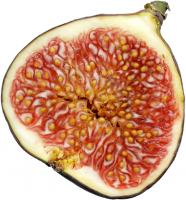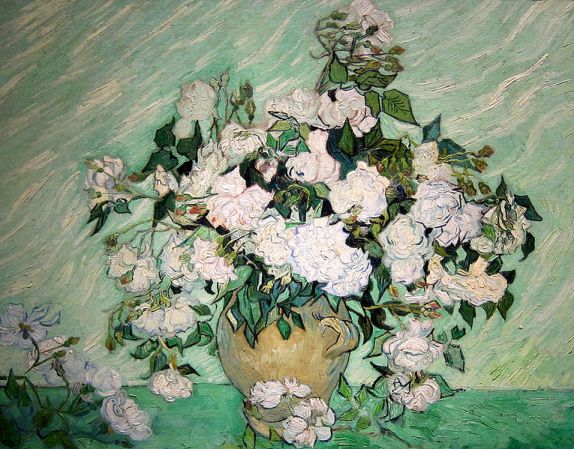Gilgamesh, Tablet VII–The Cedar Door
 Tablet VII of Gilgamesh, which deals with the death of Enkidu, Gilgamesh’s companion, is difficult for modern readers to appreciate. The tablet contains the (mostly intact) account of Enkidu’s vision of the Underworld–the first account of Hell (though a Hell quite different from the one most of us are familiar with). But even stranger are Enkidu’s curses of those people he feels are responsible for his death. Among the targets of his rage are the door that he carved from the cedar wood taken during the Forest Expedition in Tablet IV. It might seem strange that Enkidu blames an inanimate door for his troubles, but in ancient Mesopotamia, such objects, whether conscious or not, acted as powerful intermediaries with the gods–a belief that eventually resulted in the biblical ban on idolotry.
Tablet VII of Gilgamesh, which deals with the death of Enkidu, Gilgamesh’s companion, is difficult for modern readers to appreciate. The tablet contains the (mostly intact) account of Enkidu’s vision of the Underworld–the first account of Hell (though a Hell quite different from the one most of us are familiar with). But even stranger are Enkidu’s curses of those people he feels are responsible for his death. Among the targets of his rage are the door that he carved from the cedar wood taken during the Forest Expedition in Tablet IV. It might seem strange that Enkidu blames an inanimate door for his troubles, but in ancient Mesopotamia, such objects, whether conscious or not, acted as powerful intermediaries with the gods–a belief that eventually resulted in the biblical ban on idolotry.
Here then, without further ado, is Enkidu’s curse (and his prayer to the sun) from section ii of Tablet VII:
ii. Cedar Door
·
In the desolate hours before the Sun returns,
Gilgamesh searched Uruk for his companion,
scoured the broad streets and shuttered alleys.
He found him, waiting eager, at the Sun’s shrine.
They embraced, and Enkidu said: “The day is here—
your Father will bless us as he climbs the sky.”
·
Utu rose resplendent, and Enkidu beseeched him:
“Merciful god, whose Eye has seen the world,
whose Face is never turned away from our need,
why must I die? Did not Father Sky create me?
Have I not brought peace to Gilgamesh the King,
joy and ease to Uruk, throne of god and goddess?
·
“I acknowledge my offenses in the Cedar Forest,
admit my scorn for the Lady and the Great Bull.
But the damage I have inflicted can be made good:
we will restore the Goddess to her privileges,
protect the Great Forest, revere the Divine Bull.
Summon the Council—appeal to their true nature!”
·
The Sun, burning in the sky, returned no answer.
Enkidu scowled, terrified at the god’s rebuke.
Certain that Anu had dismissed Utu’s defense,
he thought of the Cedar Door dedicated to Enlil,
the door whose timid plea the gods had rejected.
Outraged at their sudden disregard, Enkidu spoke:
·
”Door of death: you have renounced me,
abandoned your father to heaven’s malice.
Skulking door: some say you do not think,
yet you outwitted us with your promise,
lured us into the monster’s precinct.
Desiring your grace, we angered the gods.
·
“I cut you from the Tree of Heaven,
smoothed and polished your mute stuff,
conjured your voice, opened your mouth.
You are thick as my fist, twice my height,
moving at a nudge. Nippur worships you;
its people exalt you, ask your auspice.
·
“And faithless you pay me back with death!
You fear the lightning, Enlil’s white fire,
equivocate, acknowledge that I am guilty.
If I had known your duplicitous heart,
you would stand in Utu’s Shining House,
burn between the sun’s fire-winged Bulls.
·
“But I who made you can obliterate you.
I can strike back, expose your treachery,
scrape off my prayer, disown your words.
People will cry out against your fine face;
the king of future days will rip you down,
hang your wood for an archers’ mark!”
·
© 2011, Eric Quinn
·
Note: in the next-to-last stanza, “Utu’s Shining House” is E-babbara, the Sun-God’s temple in the ancient city of Sippar. “The sun’s fire-winged Bulls” refers to statues set at the entrance of E-Babbara to guard it.
·
Photo: Cedar of Lebanon Door; author: Roger Griffith; WikiCmns; Public Domain.
·





Stately and elegant.